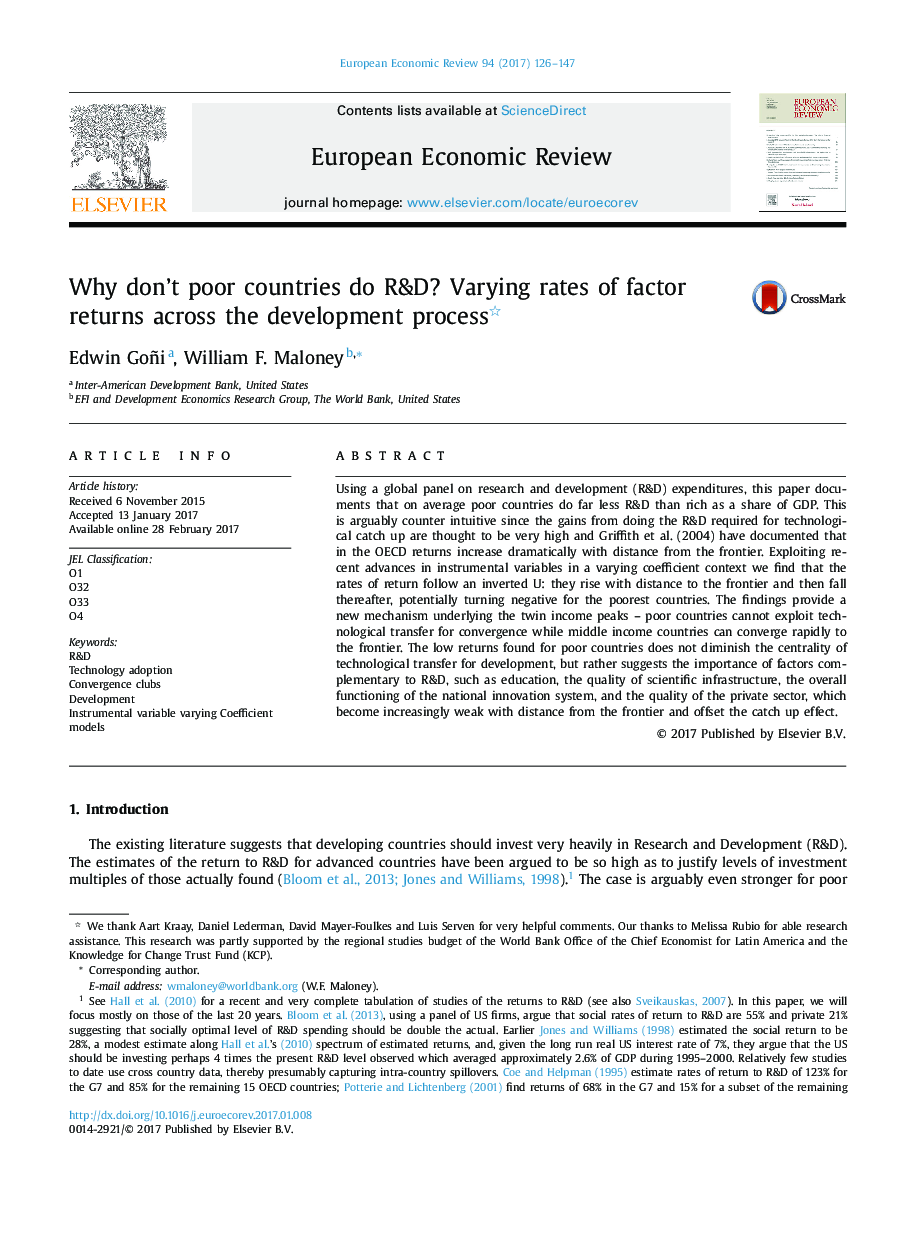| Article ID | Journal | Published Year | Pages | File Type |
|---|---|---|---|---|
| 5066375 | European Economic Review | 2017 | 22 Pages |
Using a global panel on research and development (R&D) expenditures, this paper documents that on average poor countries do far less R&D than rich as a share of GDP. This is arguably counter intuitive since the gains from doing the R&D required for technological catch up are thought to be very high and Griffith et al. (2004) have documented that in the OECD returns increase dramatically with distance from the frontier. Exploiting recent advances in instrumental variables in a varying coefficient context we find that the rates of return follow an inverted U: they rise with distance to the frontier and then fall thereafter, potentially turning negative for the poorest countries. The findings provide a new mechanism underlying the twin income peaks - poor countries cannot exploit technological transfer for convergence while middle income countries can converge rapidly to the frontier. The low returns found for poor countries does not diminish the centrality of technological transfer for development, but rather suggests the importance of factors complementary to R&D, such as education, the quality of scientific infrastructure, the overall functioning of the national innovation system, and the quality of the private sector, which become increasingly weak with distance from the frontier and offset the catch up effect.
